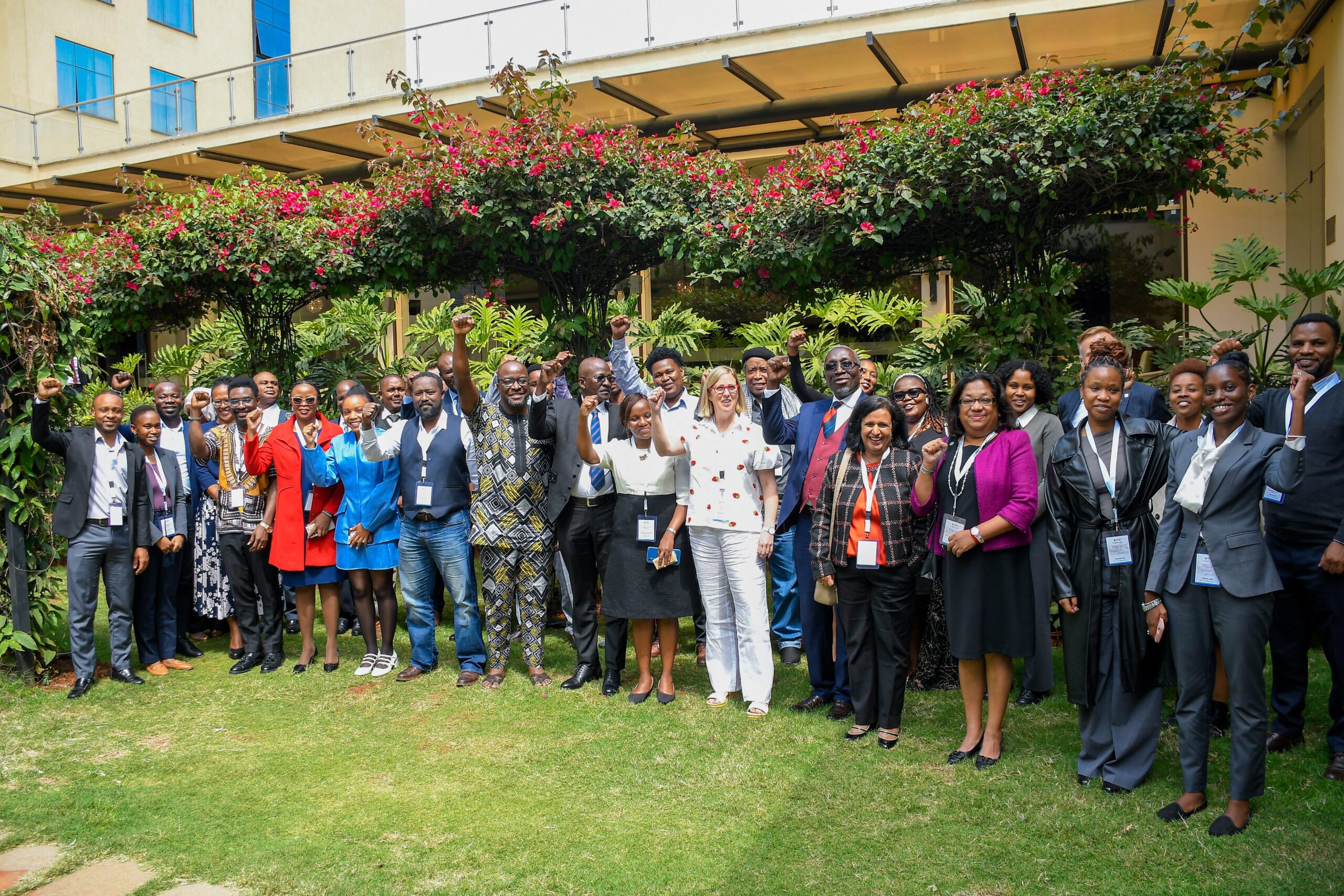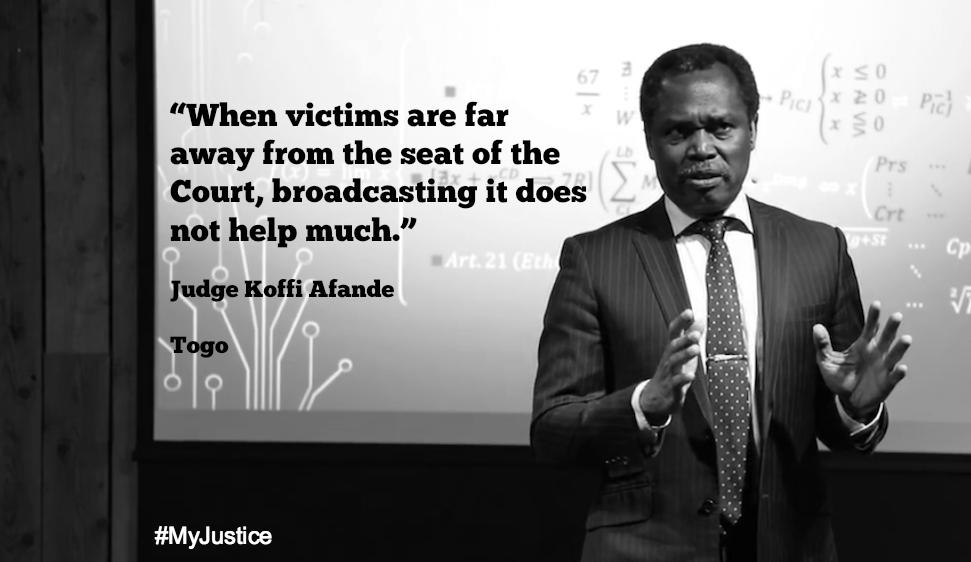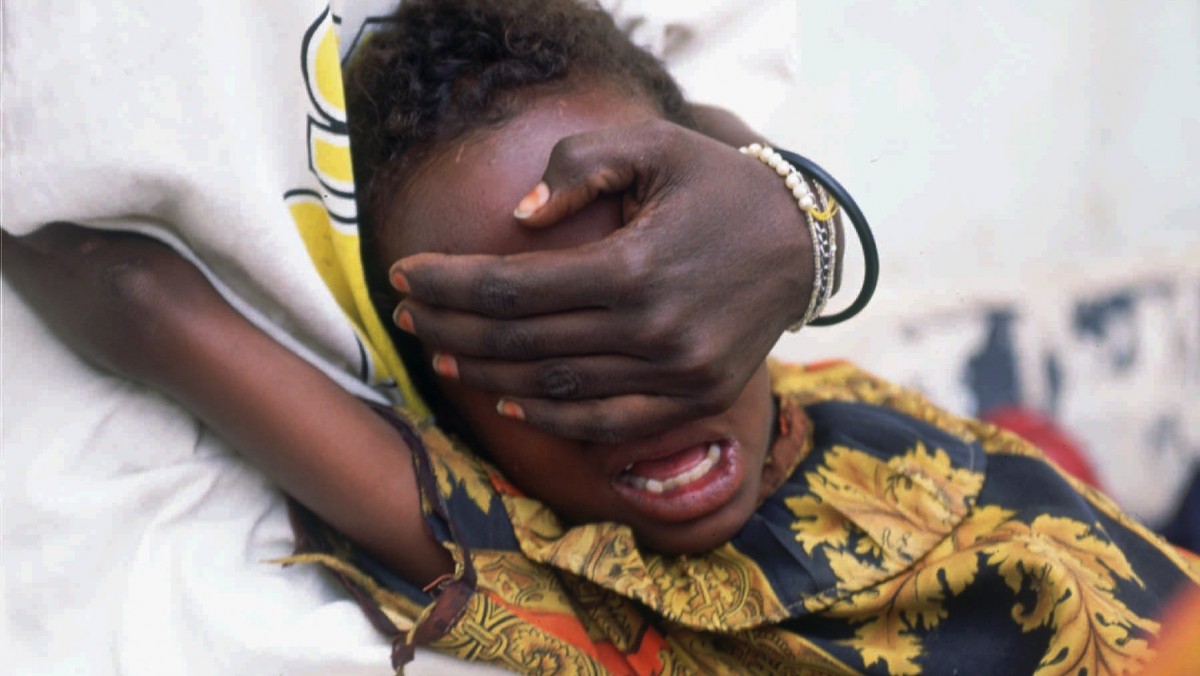Justice Hub
Judge Koffi Kumelio A. Afande, who has served on both the International Criminal Tribunal for the Former Yugoslavia (ICTY), and the International Criminal Tribunal for Rwanda (ICTR) has given a damning appraisal of the outcome of the Kenyan cases at the International Criminal Court (ICC) for the victims, particularly on reparations.
Speaking in The Hague as part of an interactive debate organised by HAGUE TALKS, a forum for new ideas that advance human dignity, peace and justice, Judge Afande pointed out that victims in the Kenyan cases hadn’t received any reparations as an example of how the international criminal justice system is failing to protect the interests of victims.
“We are used to believing, as part of criminologist theory, that prosecution also entails reparations for victims. But it’s not automatic. There should be reparation elements incorporated into the prosecution strategy to make sure that at the end, even if the case is suspended there will be justice to victims,” said the Togolese judge who once served as his country’s Senior legal advisor at the United Nations Security Council.
“I am referring to the Kenyan cases at the ICC. We all saw the victims on the screens but since the case is suspended, no one talks about victims anymore. It’s like they don’t exist. It’s not because there was no conviction that there are no victims,” he added.
The ICC cases against two of the most powerful men in Kenya, President Uhuru Kenyatta and Deputy President William Ruto, collapsed due to lack of evidence. Prosecutor Fatou Bensouda blamed “unprecedented” interference including witness bribery and coercion for depriving her of the evidence she needed to proceed with the cases. Whatever the circumstances, Judge Afande believes the ICC should have found a way to make sure the victims were not left empty-handed.
“I was expecting some organs of that court to file a motion moving the court to grant at least reparations to victims (who we all saw) independently of the status of the criminal case but nothing has come so far,” he said.
It is rare to hear a judge of Afande’s stature speak so frankly of the shortcomings the international criminal justice system. During his talk, the judge did not hold back. He was also dismissive of tribunals that pride themselves on broadcasting their proceedings:
“When victims are far away from the seat of the Court, broadcasting it does not help much. Even the (ICC) statute provides for having in situ proceedings. ICTR did it in the past. We held hearings in Rwanda where the victims were. How can the ICC or other courts which are not located on the theatre of the crimes, how can they not move and have part of the hearings held there?
For his parting shot, Judge Afande shared an inspiring tip on how to make the universalisation of international criminal justice a reality:
“We are fighting for the universalisation of international criminal justice but it does not depend on the organs [and nor] does it depend on the governments. It depends on the eyes of the victims. That is to what extent international justice will guarantee a fair trial to them. That’s the only way for us to reach the universalization international criminal justice,” he said.
You can watch Judge Afande’s unsparing, warts and all, assessment of the international criminal justice system, in full, below
https://justicehub.org/article/former-icty-judge-victims-kenyan-icc-cases-got-raw-deal
Photo and Source: https://justicehub.org










